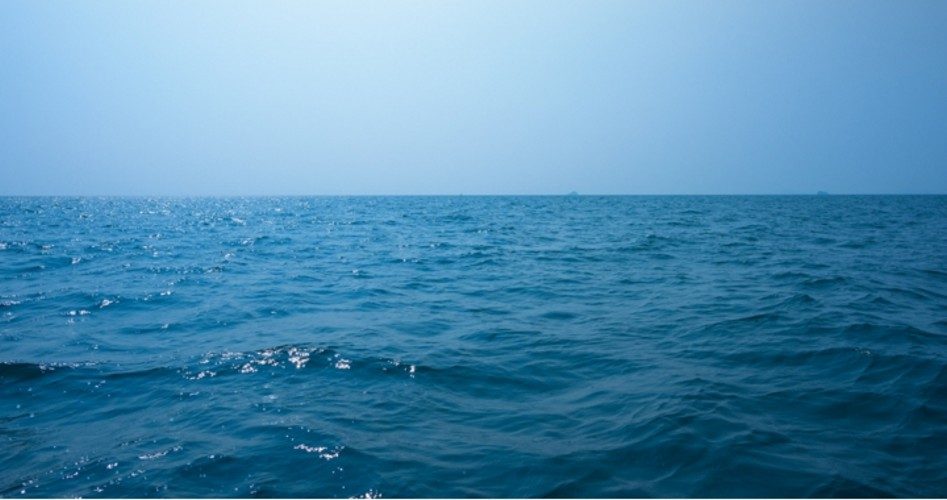
“This provides the most complete account yet of what was happening in the hydrocarbon plumes in the deep ocean during the event,” observed Gary Anderson, a microbial ecologist at the National Laboratory of the Department of Energy, located in Berkeley. The “event” was the largest oil spill in history — the Deepwater Horizon oil spill in the Gulf of Mexico in 2010. It is estimated that the total discharge of oil into the Gulf was 4.9 million barrels.
British Petroleum (BP) eventually agreed to pay $18.7 billion in fines, the largest corporate settlement in American history.
The spill was the result of a Deepwater Horizon drilling rig explosion on April 20, 2010 and fire. The rig was located about 40 miles from the coast of Louisiana, and the explosion killed 11 workers, injuring 17 others.
It took several months to bring the oil leak under control, with some leaking continuing as late as 2012. At the time, there was great concern about how so much oil was going to ever be cleaned up, using the available technology.
But amazingly, the oil virtually disappeared on its own, leading to various explanations. One explanation was that natural causes — oil-eating microbes had done the trick.
Now, because of the work of Anderson and others, the oil-degrading bacteria has been identified, and the explanation has been published in the Proceedings of the National Academy of Sciences, under the rather lengthy title, “Simulation of Deepwater Horizon oil plume reveals substrate specialization within a complex community of hydrocarbon-degraders.”
“We simulated the conditions of the Gulf of Mexico oil spill in the lab and were able to understand the mechanisms for oil degradation from all of the principal oil-degrading bacteria that were observed in the original oil spill.”
After a 64-day study, Anderson summarized the results. “Our study demonstrated the importance of using dispersants in producing neutrally buoyant, tiny oil droplets, which kept much of the oil from reaching the ocean surface. Naturally occurring microbes at this depth are highly specialized in growing by using specific components of the oil for their food source. So the oil droplets provided a large surface area for the microbes to chew up the oil.”
The practical result of this study is the what to do about oil spills in the future, Anderson explained. “We now have the capability to identify the specific organisms that would naturally degrade the oil if spills occurred in other regions and to calculate the rates of the oil degradation to figure out how long it would take to consume the spilled oil at depth.”
It is unclear whether these microbes exist in other climate zones, such as Alaska. “The Gulf of Mexico is home to one of the largest concentrations of underwater hydrocarbon seeps, and it has been speculated that this helped in the selection of oil-degrading microbes that were observed in the underwater plumes…. Our greatest hope would be that there were no oil spills in the future. But having the ability to manipulate conditions in the laboratory could potentially allow us to develop new insights for mitigating their impact.”
What is clear is that all energy exploration and all energy use is potentially dangerous — otherwise it would not be able to accomplish what it does in running machines, automobile engines, and even lighting our homes. It is also clear that energy giants such as British Petroleum should be held accountable if they are negligent in the extraction of oil from places such as the Gulf of Mexico.
Yet, it should be understood that there are those with an agenda to paint all private industry as “evil,” with the implication that government is the “savior.” The ultimate goal for many is the ownership of all of what is private enterprise by the government — which is the very definition of socialism.
The alternative to drilling for oil, construction of nuclear power plants, and the other activities to provide the fuel for the economy is to have a reduced standard of living. Thousands have lost their lives in automobile accidents, plane crashes, train wrecks, and the like, but no one seriously argues that we should outlaw all cars, planes and trains. Again, those who do not operate such modes of transportation in a safe manner should be held accountable, but no business or individual can ever eliminate all risk — and neither can government. As President Warren Harding said in 1920, “All human ills are not curable by legislation.” Today he would have to add, “or by bureaucratic edicts.”
In the aftermath of the disaster, not only BP, but also rig operator Transocean and contractor Halliburton, were faulted by a government investigation, arguing that there was defective cement in the well. Halliburton and BP exchanged charges that the other was at fault, with Halliburton claiming that they had warned BP about the cement problem.
Some dangerous precedents were established in the reaction of the U.S. government. Instead of the normal workings of the justice system being used to investigate, and possibly file criminal and civil charges against BP and its partners, President Obama established a “White House commission” to conduct an investigation. With public opinion understandably highly charged against BP, this action certainly helped Obama going into the 2012 presidential election.
Eventually, the criminal and civil penalties and payments to a trust fund had cost BP $42.2 billion. Clearly, BP and any other business responsible for the Deepwater Horizon disaster should be held accountable, but one suspects that $42.2 billion could possibly be excessive. And political.
Fortunately, God has provided oil-eating microbes to mitigate the failures of human beings.



